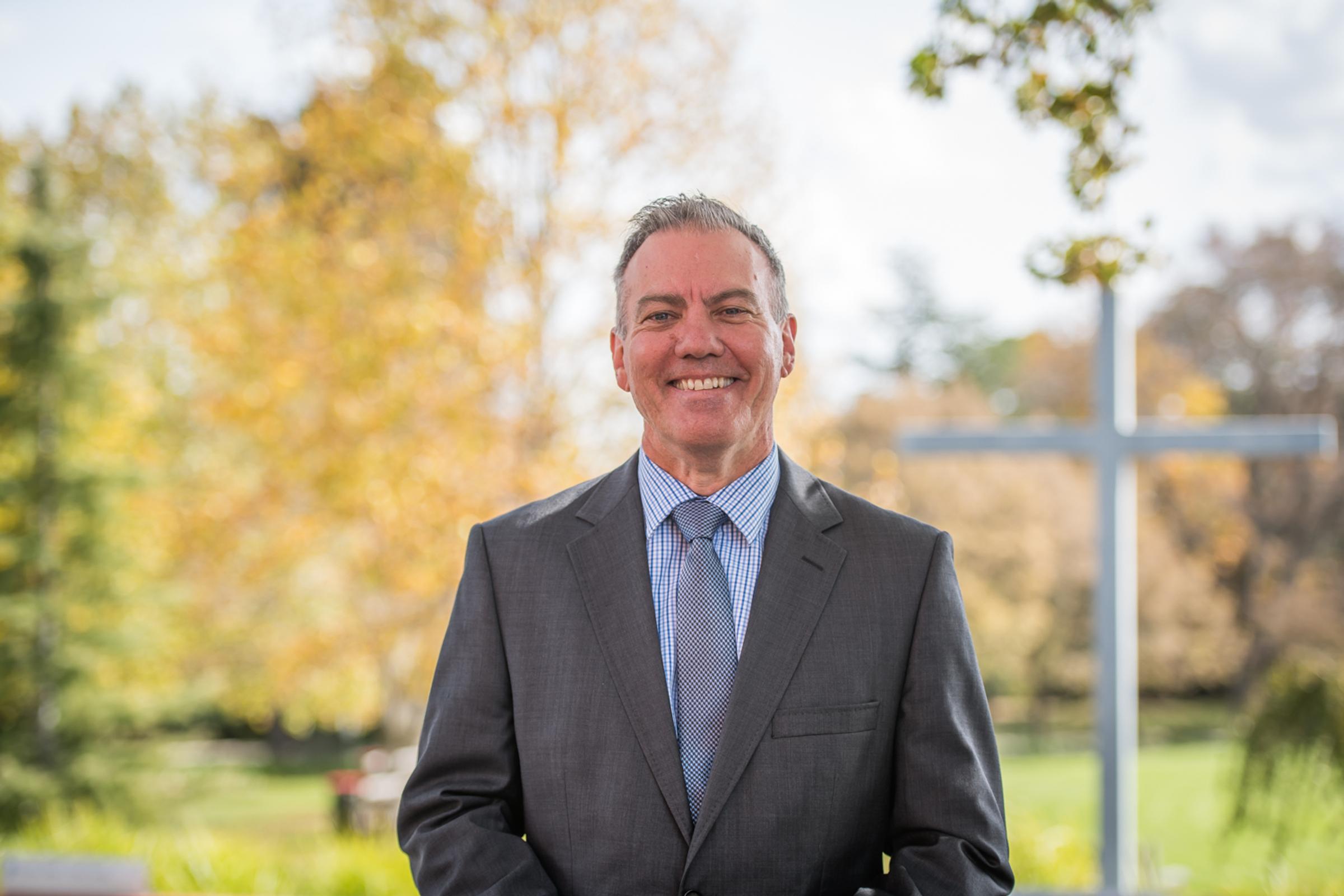Message from the Chaplain

Great Commandment
One of the scribes asked Jesus, “Which commandment is the first of all?” Jesus answered, “The first is, ‘Hear, O Israel: the Lord our God, the Lord is one; you shall love the Lord your God with all your heart, and with all your soul, and with all your mind and with all your strength.’ The second is like it, ‘You shall love your neighbour as yourself.’ There is no other commandment greater than these.” The scribe said to him, “You are right…” (Mark 12:28-32)
The above passage is part of the readings prescribed for this weekend. The question of which is the greatest commandment seems innocuous but in the Hebrew Scriptures (the Old Testament) there are 613 commandments and in addition, there were a host of ‘oral commandments’ not written down. The purpose of identifying the most important was to help interpret all the others.
Jesus replies with the Schema: ‘Hear, O Israel: the Lord our God, the Lord is one; you shall love the Lord your God with all your heart, and with all your soul, and with all your mind and with all your strength.’ This was and still is prayed by observant Jews each morning; except for “and with all your mind”, that was an addition by Jesus. Nevertheless, it remains the central tenant of faith. I like that Jesus added “and with all your mind.” In some Christian congregations today there is a kind of anti-intellectualism, a sense that thinking too much about the faith is dangerous.
I was standing in a check-out line and a couple noticed the cross I was wearing. He asked if I was a Christian. (‘What was your first clue?’ I said with my in-head voice). They too were Christian. He said ‘it’s easier when you don’t think too much about the meaning of the Bible but just read it as it is’. Wow. I guess it would be, but it wouldn’t be what Jesus would be happy to hear. How can we understand the Word of God without an understanding of the times and contexts of the writings? And let’s face it, there’s an awful lot in the Bible that we don’t want to be living today. Stonings, revenge killings, amputation of limbs for crimes and the oppression of women can all stay locked into their historical past times and contexts!
Thinking about God, seriously studying the Scriptures, speaking for the truths of Christian faith in confronting the abuse of human rights and dignity, are important and necessary ways of loving God with all your mind. What greater activity is there to occupy the mind than to think God’s thoughts after him, to seek to understand the ways of God, to go as far as we can into the beauty of God’s being? But we need to do this intelligently.
An intelligent loving of God reads scripture with an exploration of the cultural contexts and the historical understandings of life from which those scriptures were written. To do otherwise implies that the scriptures are dictations of God’s speaking. This is why, for example, the Uniting Church in Australia ordains women despite the oppression of women in biblical times, why the Church works to redress the dispossession of indigenous Australian despite the absence of reference to the matter in the Bible and why the Church continues to argue support for same-gender marriage despite some Christians choosing to apply a literal, context-free interpretation of anti-homosexual references in the Bible. An intelligent reading of the Bible forms conscience and disciplines our living in the modern world.
The basic, the most important, the fundamental commandment of all is to love God. It is not to obey God, though that is included in love. It is not to worship God, though love leads inevitably to worship. God desires our love because God is love. We were made for love. The whole universe is made from love and for love. And the greatest love of all, from which all other loves flow, is to love God. In these words Jesus opens our hearts like earth to rain. We are made for love.
The Scribe had asked for the first, the key commandment, but Jesus adds a second. “You shall love your neighbour as yourself” is a commandment from the Book of Leviticus (19:18). Jesus combines the two sets of commandments found within the Ten Commandments, those to do with God, and those to do with ‘neighbour’.
When Jesus calls it the second, he does not mean that it is secondary to the first. He closes by saying, “There is no greater commandment than these.” Notice the singular word “commandment,” and the plural, “than these.” In other words, we should think of these two commandments as one; you can’t have one without the other.
The scribe’s positive response to Jesus is also important. It demonstrates that Jesus is not proclaiming something new. Jesus may be radical in his application of the law, but he understands it deeply, affirms it and applies it intelligently and appropriately to his time. This is why we often read Jesus say; “you have heard it said… but I tell you…”.
Jesus’ response to the scribe is “You are not far from the Kingdom of God.” It’s important to know and think deeply about God’s commandments. It’s certainly important to know the centrality of love in keeping God’s commandments so that we can be “not far” from the Kingdom.
Phil Worrad
Chaplain
